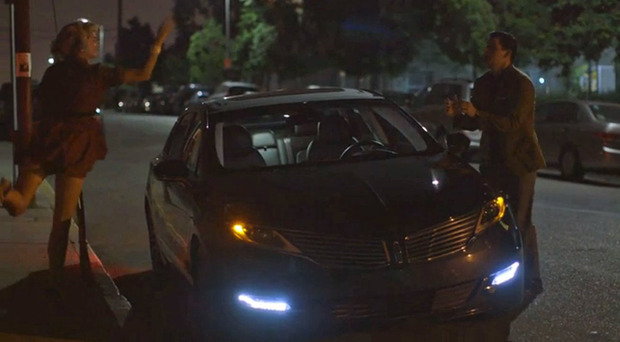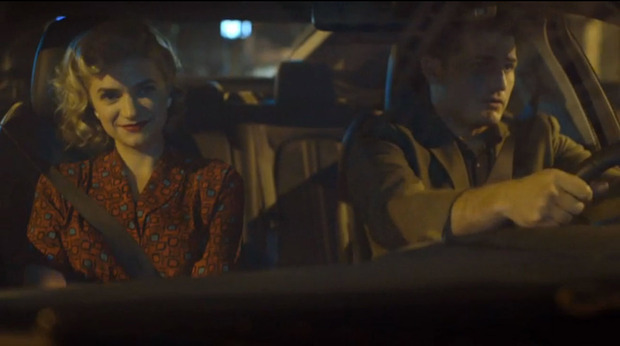(Re)turn of the Screw
The screwball comedy has its roots in the sport of cricket

Sponsored content:
By Chris Diken of Vimeo
In conjunction with Vanity Fair and Film Independent, The Lincoln Motor Company tapped filmmaker Dana Turken to reimagine the classic genre of screwball comedy. Her film “A Likely Story,” is a madcap adventure complete with photo booths, Twitter feuds, nincompoops and the triumph of love. Along with the film, here is a historical exploration of the screwball film genre.

As far back as the mid-19th Century, cricket fans knew the screwball as a pitch from bowler to batter that, because of its severe spin, behaved unpredictably in the air. The same term was later adopted in American baseball, for the same reason: pitcher throws with heavy spin, batter can’t follow ball.
Around the time the screwball landed in baseball—the 1930s—it also became a slang term for an “eccentric person.” Someone with a screw loose, in one way or another.
It is sometimes thought that a screwball comedy is a film that has an unpredictable path, as in the pitch. However, while screwball comedy may have an unpredictable narrative, it’s not that unpredictability that makes it a screwball. Rather a screwball is a film about an individual or individuals who themselves are screwballs—i.e. outsiders in society.

During the Great Depression—the real screwball heyday—the most popular screwball archetype was the self-possessed woman: a female who refuses to play the role that society has set up for her. She is the heiress who doesn’t want daddy’s money and the bodacious babe who falls in love with the meek and nerdly scientist, despite having every hunk at her disposal.
Even in the ‘30s and ‘40s, the bold-woman concept was not entirely new. Aristophanes’ “Women in Parliament” has screwball aspects (the title alone must have stricken fear in the hearts of men), and Shakespeare could have switched out one letter in the title Taming of the Shrew. In short, screwball comedies are part of the timeworn category of cultural output that shows the sexes at war, but the screwball comes out on top.
Some of the most well-known screwball comedies fit neatly into the empowered-woman framework, with spoiled socialites falling for a lowly reporter and rich girls meeting vagrants in city dumps, hiring them as butlers and then falling in love with them. To fall for the hired help could be the most screwball move of all.

Screwball comedies, especially those with female leads, were important in a larger context because of the newly minted Hays Code, introduced in 1930 to “rehabilitate” Hollywood and do something about its questionable morals. The list of prohibited and sensitive subjects was long, and included profanity, marriage, deliberate seduction of girls, sympathy for criminals and—of course—excessive kissing. The often exaggerated “zany” aspects of screwball comedies enabled directors to incorporate these risqué elements into their plots.
But not every screwball film of the genre’s golden age features a lady in a central role. Some involved people who believed in imaginary creatures, or who simply did not do what society expected of them. The Hays Code was abandoned in 1968 in favor of the modern-day MPAA rating system, at which point screwball-type activities became more commonplace. Screwball comedies, however, became scarce, possibly because the women’s liberation movement was under full sail; a woman with a mind of her own was no longer seen as an oddity.

Movies with man-woman high jinks continued to flourish, and screwballs gave way to romantic comedies in the 1970s and ‘80s. With premises that show love surmounting the most bizarre circumstances and obstacles, the films feature their own different types of happy endings and provide the same sort of win-one-for-the-underdogs satisfaction of screwballs.
More contemporary comedies are less strictly screwball, but they are likely to incorporate screwball elements for sheer entertainment value: they are funny in a vacuum, not just because of their subversion of traditional expectations.
The lasting effect of screwball comedies may not even be their legacy of female triumphs. Rather, it’s that everyone is entitled to have specific, individual opinions that play against type, to the chagrin of more close-minded thinkers. To not enjoy this kind of comeuppance, you need to have a screw loose.
Watch the film now on Vimeo.
Meet filmmaker Dana Turken and go behind-the-scenes of “A Likely Story” on Lincoln Now.
Images courtesy of Lincoln Motor Company












